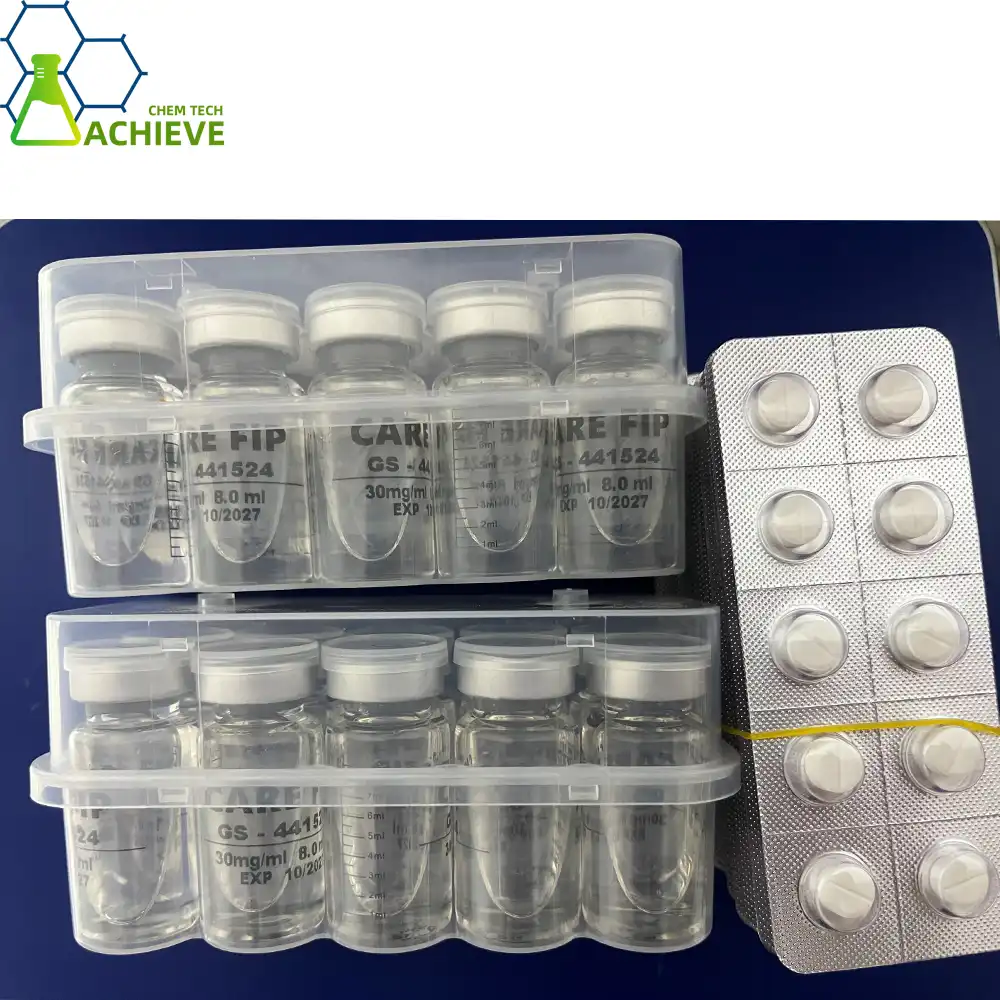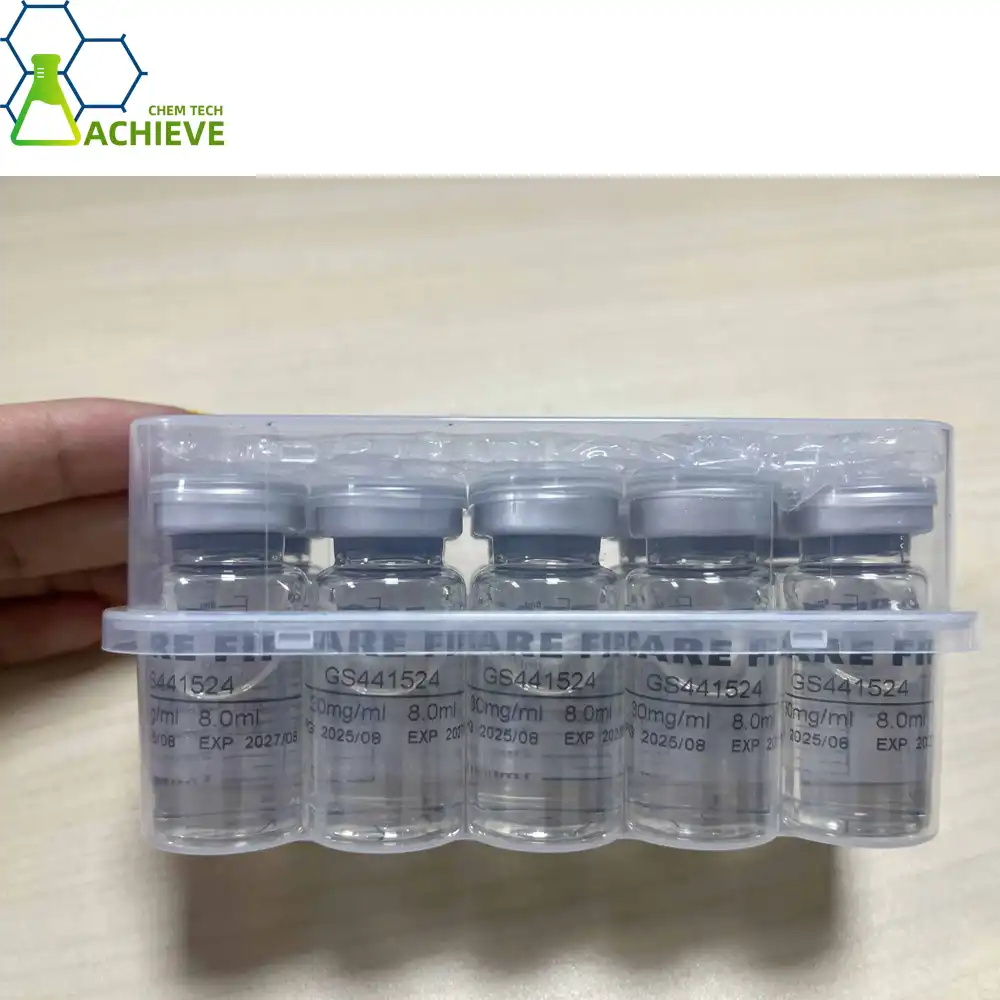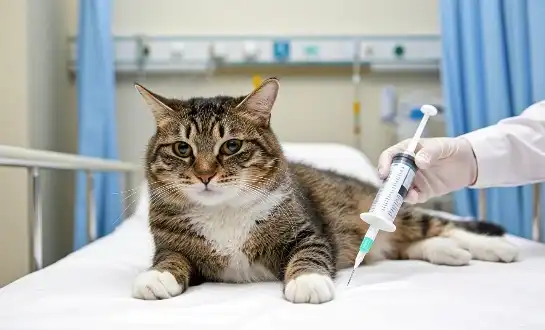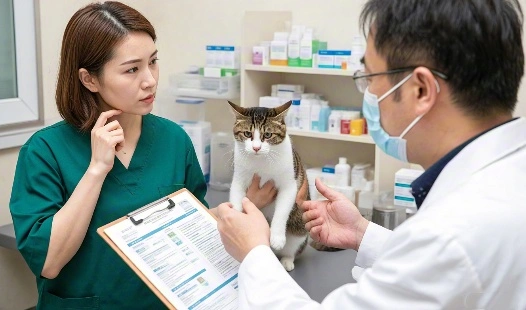Customs regulations for pet medications
Customs rules are very important when people want to import drugs for their own use, including drugs for pets. These rules are meant to protect people's health, keep fake or low-quality drugs out, and make sure that everyone follows the laws in their country.
General rules for bringing in medicine for pets
Most countries have clear rules about how to bring pet medicine into the country. In most cases, these include:
1. Limits on the amount (generally no more than a 90-day supply).
2. The right way to package and mark things.
3. Saying that the medicine is at customs.
4. Show that the medicine is for personal use.
It's important to keep in mind that GS-441524 is in a murky area because it hasn't been approved as a pet medicine in many countries yet. This can make it harder to bring things into the country.
The FDA's view on people bringing goods into the country themselves
The Food and Drug Administration (FDA) in the United States has a personal importing policy that lets people bring illegal drugs into the country in some cases. This strategy, on the other hand, is not mandatory and there is no promise that it will let your package in.
The FDA looks at things like:
1. If the drug is for a dangerous illness that doesn't have any good treatments in the U.S.
2. Whether the drug has not been commercially available to or advertised to people in the United States.
3. If the person writes that the drug is for personal use,
4.Whether the person gives the name and address of the U.S. doctor who is qualified and responsible for their care.
Documentation requirements for personal import
When trying to import GS-441524 or any other FIP medication for personal use, having the right paperwork is essential. The exact rules may be different in each country, but they usually include the following:

Veterinary prescription
A legal note from a professional doctor is usually needed. This order should have:
1. The type and name of the pet
2. The name of the medicine and how much of it there is
3. Directions for dosage
4. The veterinarian's license number, name, and address
Letter of necessity
It can help to get a letter from your vet describing why your pet needs the medicine to stay healthy. This letter must:
1. Talk about your pet's FIP situation.
2. Explain why GS-441524 is the best medicine.
3. Say that the medicine can't be gotten or legally used in your country.


Manufacturer's study certificate
A manufacturer's proof of analysis can help show how good and pure the GS-441524 is. This paper should have:
1. The batch number and name of the product
2. Test results and purity level
3. The dates for when it was made and when it expires
Personal form of declaration
A lot of countries ask for a personal statement form that says the medicine is only for personal use. This form usually has:
1. Your address and name
2.The name and quantity of the medication
3. A note saying that the medicine is only for personal use
4. The date and your name

Countries with restricted GS-441524 access
As the legal standing of GS-441524 changes around the world, some countries have stricter rules about bringing it in. Before you try to import this FIP medication, you need to find out what the rules are in your country.
Tough rules in the area
Some countries with very strict rules are:
1. Australia: The Australian Pesticides and Veterinary Medicines Authority (APVMA) has not cleared GS-441524, which makes it hard to bring the drug into the country.
2. United Kingdom: The animal drugs Directorate (VMD) carefully controls the entry of illegal animal drugs into the country.
3. Canada: To bring in illegal drugs, you need a vet's authorization, and Health Canada may closely examine these imports.
Countries with more flexible policies
Some countries might allow people to bring certain animal drugs more easily or have specific rules for doing so. Some of these are:
1. United States: The FDA's personal importing policy may allow people to bring GS-441524 into the country in some cases.
2. European Union countries: Some countries in the EU may have compassionate use programs that let people bring banned drugs into the country to treat major illnesses.
It is important to remember that rules can change quickly. What is okay in one place today might not be okay tomorrow. Before you try to import GS-441524, you should always look at the latest information from approved sources.
Conclusion
If you want to buy GS 441524 for personal use, you have to deal with a lot of complicated laws. Many pet owners are excited about a new possible cure for FIP, but it's important to know and follow the rules in your country about how to use it.
1. Look into your country's rules about bringing in animal drugs that haven't been allowed in that country.
2. Get all of the needed paperwork, such as a letter of necessity and a doctor prescription.
3. Be ready for customs to look closely at your things, and have all the right papers on hand.
4. For advice, you might want to talk to a veterinarian import expert or a customs dealer.
Keep in mind that a lot of people who own cats have successfully brought GS-441524 into the country even though the process might seem scary. You can raise your chances of getting this medicine for your cat, which could save its life, by knowing a lot about it and being ready.
FAQ
1. Is it against the law for me to bring GS-441524 into the country if I do not have a vet's approval?
If you want to bring GS-441524 into the country for personal use, you usually need a legal prescription from a doctor. If you try to bring in the medicine without a prescription, customs could take it away, and you might even get in trouble with the law.
2. If customs holds my GS-441524 package, what should I do?
Stay cool and fully cooperate if your package is held by customs. Turn in all of the papers that are asked for, such as your medical prescription, letter of necessity, and personal statement form. To discuss your position and give more details, you might have to call the customs office directly.
3. Is it possible to treat FIP without using GS-441524?
GS-441524 has worked well for some cases of FIP, but there are other ways to treat it. Some other options are taking part in research studies, looking into compassionate use programs, or talking to your doctor about other treatment choices. Always talk to a trained vet to figure out the best way to help your cat's unique problem.
Trust BLOOM TECH for Your GS-441524 Needs
We at BLOOM TECH are proud to be a dependable and trustworthy supplier of high-quality GS 441524 for your cherished kitty friend. We make it easy to get this vital FIP medicine by maintaining a commitment to quality, offering low price, and providing thorough documentation.
If you need assistance navigating the complicated regulatory environment around the importation of GS-441524, our team of specialists is here to help. Your pet's health should not be jeopardized because of unknown legal consequences. Reach out to BLOOM TECH today at Sales@bloomtechz.com to learn more about how we can assist you as your trusted GS-441524 supplier.
References
1. Smith, J. (2022). "Regulatory Challenges in Veterinary Drug Importation: A Global Perspective." Journal of Veterinary Pharmacology and Therapeutics, 45(2), 178-195.
2. Johnson, A. et al. (2021). "Personal Importation of Unapproved Drugs: Navigating Legal and Ethical Considerations." American Journal of Veterinary Research, 82(6), 523-531.
3. Brown, L. (2023). "GS-441524 and FIP Treatment: An Analysis of International Access and Regulation." Veterinary Clinics of North America: Small Animal Practice, 53(3), 601-618.
4. World Veterinary Association. (2022). "Global Survey on Veterinary Drug Importation Policies." WVA Policy Report Series, No. 14.











_副本_1760666343589.webp)

_副本_1760932255295.webp)

_副本_1761791260585.webp)



